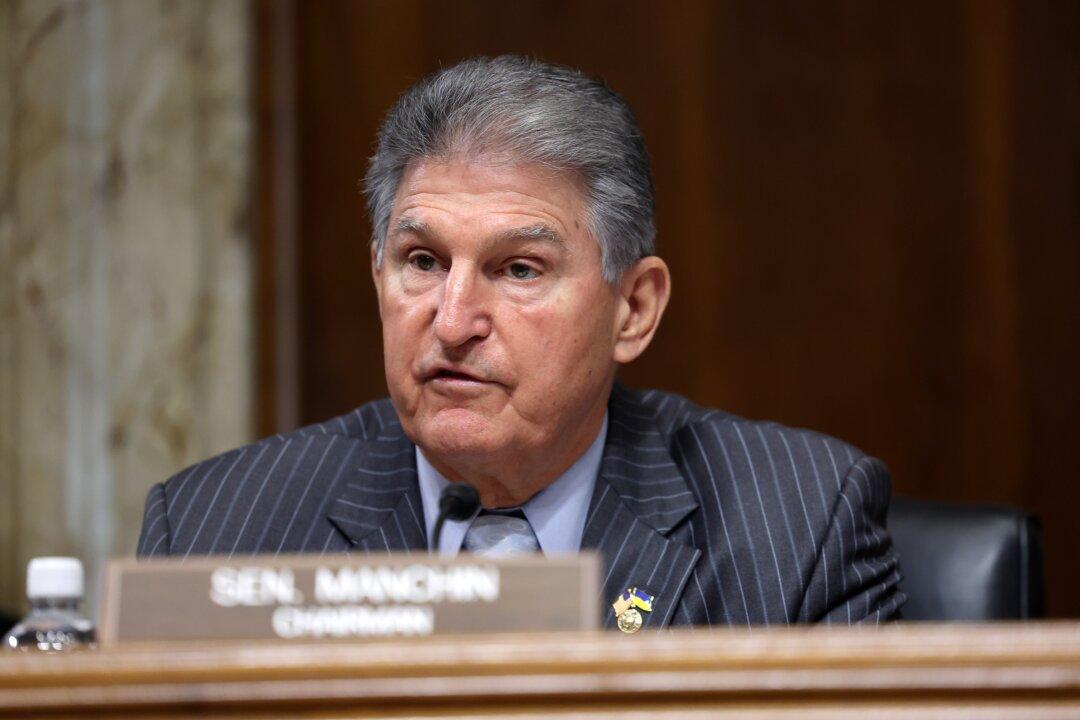Sen. Joe Manchin (D-W.Va.) grilled Energy Secretary Jennifer Granholm on Thursday over the Biden administration’s “liberalization” of the electric vehicle (EV) tax credit embedded in the Inflation Reduction Act (IRA).
Manchin, who chairs the Senate Energy and Natural Resources Committee, warned Granholm at a hearing that the administration’s lax interpretation of the IRA would “bust the budget” while also diverting money and jobs to China.





